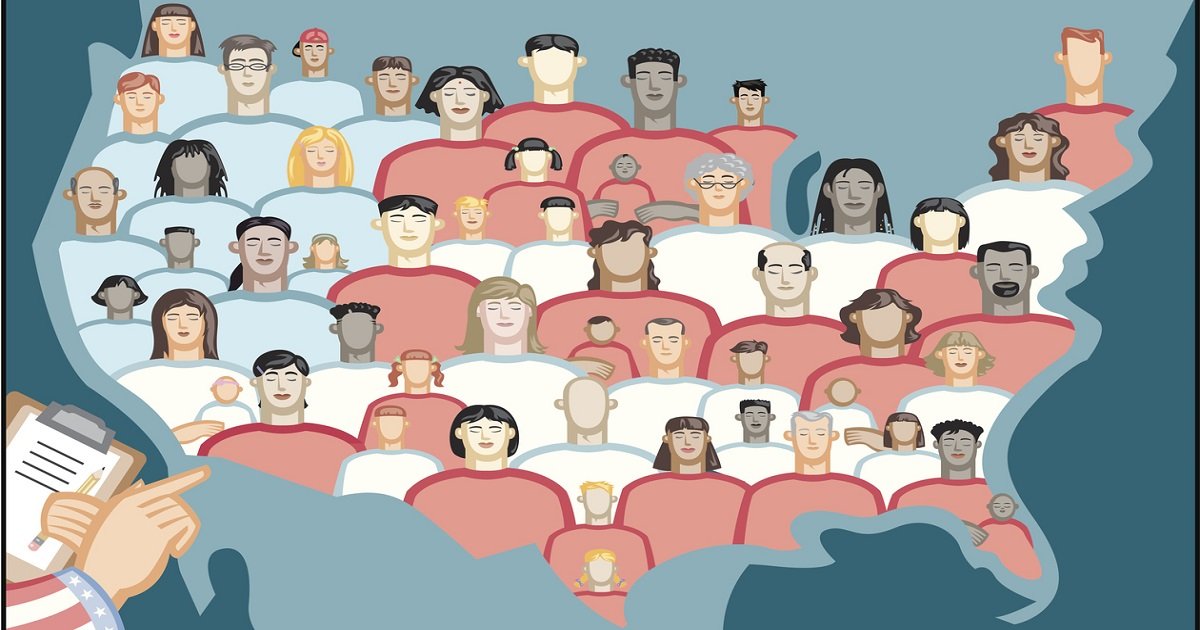This week, John Thomson, U.S. Census Director since 2013 and forty-two year veteran of the bureau, announced that he will be resigning from his job in June. While term limits for that office would have forced him to step down next year in any event, the timing is particularly worrisome, considering who will be appointing his successor – and what that successor is likely to do.
The New York Times reports that Thompson’s announcement comes just as the Census Bureau is experiencing a budget shortfall, resulting in delayed field testing of new methods next year – and raising serious concerns about the 2020 Census.
The U.S. census, conducted every ten years, is much more than a head count. It is an extensive demographic analysis of who we are as a population: where we live, what we do, what we believe – and to a great extent, how we stand on issues. In other words, it tells something about how we are likely to vote.
Herein lies a great contradiction: numerous polls and surveys have clearly shown that the majority of U.S. voters across the board are either moderate or liberal in their political and social views. And yet, for some reason, the nation is now under the jackboot of a hard-right, corporatist, authoritarian GOP regime.
Of course, we know how this has happened. It’s not because of Fox News propaganda, nor would-be kingmakers Chuck and Davey Koch spending hundreds of millions attempting to buy office for their pet politicians (although such things don’t hurt their agenda). It is because of that noxious, 200-year-old parasitic creature known as the “gerrymander” (named for Elbridge Gerry, vice-president under James Madison).
Gerrymandering is the practice of establishing voting districts on the local level in such a way as to unfairly favor one party’s candidates over that of another. It is why, when one examines a legislative map, boundaries have odd bulges and blobs separated by many miles connected with narrow corridors, resemble a map of the Norwegian coast, and in general make absolutely no logical sense whatsoever.
Under the law, these voting districts must be redrawn after each census in order to reflect the most recent demographic data. The gerrymandering is why, time after time, Democratic candidates win statewide popular votes, yet remain in the minority. Under federal law, the Secretary of Commerce must submit numbers for each state to the President within nine months following the first day of the census. After that, the President turns this information over to the Clerk of the House of Representatives before the new Congress convenes.
Based on this information, the states are then tasked with redistricting, or redrawing, voting district boundaries. In the process, a state may gain an additional legislative district, or it may lose one. For example, after the last census in 2010, New York and Ohio lost four districts, while Florida gained two and Texas gained four. In some states, redistricting is done through the legislative process, while others employ the services of independent commissions.
This process does not only affect the number of Representatives that a state sends to Washington DC – it also impacts the number of a state’s electoral college votes, which is equal to the number of a state’s Representatives and Senators.
If you are connecting the dots here, you are starting to see the danger. The good news is that many partisan-gerrymandered districts are facing court challenges, and the law allows such districts to be rejected if there are signs of “partisan asymmetry.”
The bad news: the next Director of the Census Bureau will be appointed by an Executive who has demonstrated again and again that he is a self-serving liar and a thief who cares for nothing and nobody except himself and his billionaire corporate buddies – and will be confirmed by the most openly-corrupt legislature in almost 90 years. Furthermore, the cost of doing the decennial census continues to rise – and Commander-in-Thief Trump’s recommendation of $1.5 billion for next year’s dry run of the 2020 Census falls woefully short of what will be needed (currently estimated at approximately $12.5 billion). Given how tight-fisted the GOP Congress is where it concerns anything benefiting We, The People, what are the chances they will fully fund the bureau for the upcoming census?
However you slice it, we are in for some monumental battles over the next few years.



